Governance

Renana Jhabvala
Renana Jhabvala currently serves as the President of SEWA Bharat. In this capacity, she offers strategic guidance and leadership to the organisation. Her role has been pivotal in organising informal women workers, helping them collectivise for better access to their rights and form cooperatives, collective enterprises, and financial institutions.
She has been associated with SEWA since 1978 in a number of roles within the SEWA movement, with a particular focus on overseeing the movement’s expansion and diversification. In 1990, she was awarded the Padma Shri from the Government of India for her contributions to the field of social work. She is also the Co-Founder of WIEGO and served as its Chairperson (2009-2019). She was a Member of UN Secretary General’s High Level Panel on Women’s Economic Empowerment (2016-2017) and Chancellor of Gandhigram Rural University (2012-2017). As a critical thought leader in the space of women’s work, she has made critical contributions to an understanding of informality, measuring women’s work, basic income, and most recently, was a key voice for women’s representation in the G20 proceedings under the Indian presidency.
She is a prolific author – some of her recent publications include The City-Makers: How Women are Building a Sustainable Future for Urban India, co-authored by Bijal Brahmbhatt, Hachette India (2020); Basic Income: A Transformative Policy for India, co-edited by Sarath Davala, Soumya Kapoor Mehta & Guy Standing, Bloomsbury Publication (2014) and The Idea of Work, which she co-authored with Elaben R. Bhatt, Indian Academy of Self Employed Women (2012). She currently serves as the Chairperson, SEWA Grih Rin Limited (SEWA housing finance company) and is also the Chairperson of HomeNet South Asia (2007 – present).
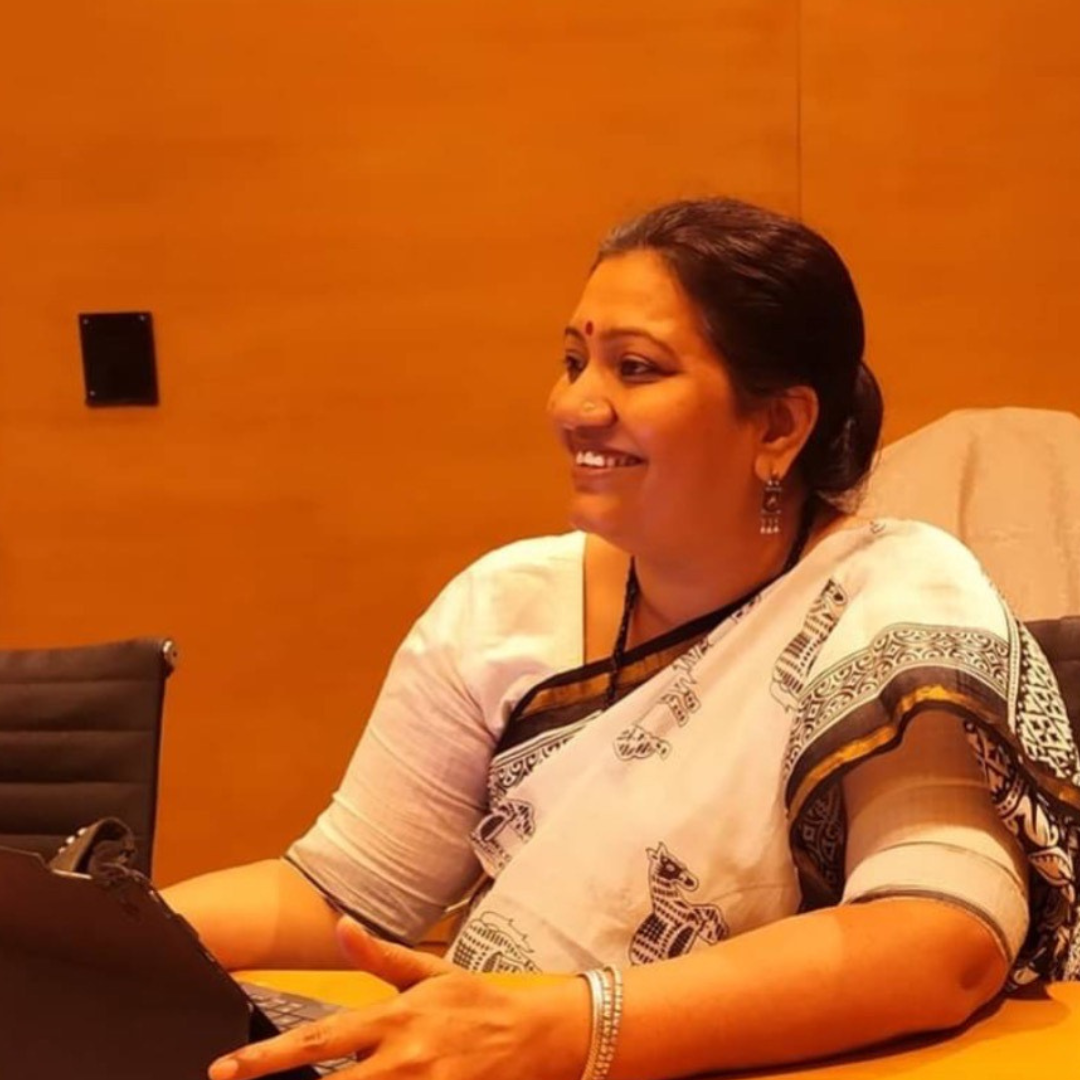
Shikha Joshi
Shikha Joshi is the current General Secretary of SEWA Bharat. She guides SEWA Bharat and its member institutions in designing work that keeps SEWA values, vision and mission at its core. She has a specific focus on building up work at the state level, supporting them in their strategies to solve issues of members, collaborating with government departments and ministries, and strengthening their governance structures.
She has been a part of SEWA since 1995 and is currently serving as General Secretary, SEWA MP (Swashrayee Mahila Sewa Sangh Madhya Pradesh). She has been deeply involved in mobilising and organising informal women workers in Madhya Pradesh for their due entitlements and recognition of their hard work in the mainstream, closely working with policy-makers for fair implementation of laws and policies, and formulation of new laws which are favourable for the informal economy workers. Additionally, she is also engaged in developing training modules for women, grassroot community leaders (aagewans), and organisers on important topics such as rights and entitlements, social security, and SEWA’s vision and mission.
She plays an essential role in leading different research studies for informal economy workers. She represents SEWA in different decision-making bodies formulated by Madhya Pradesh and Delhi state governments. She is also active at the international level and a representative in IUF Asia Pacific Regional Committee and Board of StreetNet organisation.
She has also initiated a cultural movement in Madhya Pradesh. Its goal is to amplify the voices of women workers in the informal economy through songs, street theatres, and dramas. Currently, SEWA MP boasts a collection of approximately 500 songs and 35 plays, all authored by women workers with the assistance of professionals. Of these, 100 songs have been recorded in the voices of women workers themselves.

Farida Jalees
Farida Jalees serves as the Vice President of the SEWA Bharat Board, where her role is to identify and propose solutions to optimise the operational efficacy of the organisation. She has been active for over three decades, organising women into cooperative organisations, enterprises, and collectives in India, aiming to ensure income, food, and social security for them. She has been associated with SEWA for over 35 years and is currently a core member of the National Council of SEWA. She is also the Founder and General Secretary of SEWA UP.
In 1992, Farida ben founded Lucknow Mahila SEWA Trust (LMST) and presently serves as its Director. LMST has been actively involved in supporting women from the informal economy to become self-reliant, with a special emphasis on empowering women and children in the zardozi industry where exploitation was rampant. LMST is exemplar at combining grounded advocacy with the setting up of productive collectives that allow women to gain agency over their own lives.
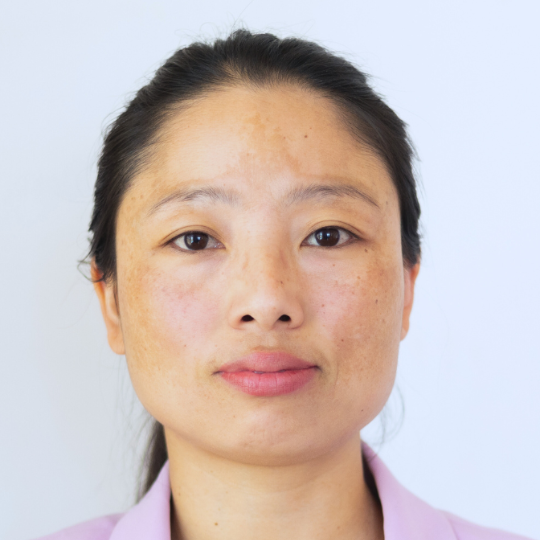
Wekoweu Tsuha
Wekoweu Tsuha serves as the Vice-President at SEWA Bharat. She has led the SEWA Nagaland team in organising women workers since 2013 and was instrumental in setting up SEWA Nagaland as a registered Trade Union in 2019 under the Directorate of Labour & Employment, Government of Nagaland. Since then, she has acted as an Associate Member of SEWA Nagaland, mentoring SEWA organisers and members, and representing SEWA Nagaland at SEWA Bharat.
Committed to working for gender and environmental justice, she has 2 decades of experience in the development space, having managed multiple projects, diverse teams, and community programmes in Nagaland. She has worked with the North East Network (NEN), a women’s rights organisation, where she has played a pivotal role in facilitating SEWA’s organising work in Nagaland. Her work has been instrumental in shaping sustainable development models that centre grassroots women’s movements and foster women’s leadership.
She has been a critical actor in pushing for strengthening local food systems and promoting sustainable farming practices, such as community seed banks and farmers’ markets. She also works towards the advancement of rural women’s rights through organising, awareness raising, capacity building, and networking with women organisations, civil society organisations and government.
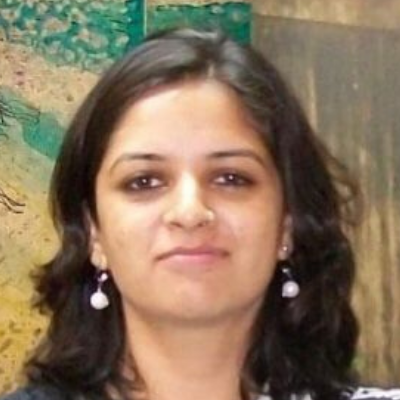
Ankita Upreti Sibal
Ankita Upreti Sibal currently serves as the Secretary of SEWA Bharat. She has been associated with the Self-Employed Women’s Association (SEWA) for the past 14 years. She has been instrumental in building SEWA Delhi and promoting the rights of informal women workers as the State Coordinator of SEWA Delhi. Her current scope of work involves supporting SEWA Delhi in becoming an autonomous entity that is entirely run by the community. She is a key advisor on various implementations, legal issues, and other compliance matters to SEWA Delhi Trust and SEWA Bharat.
Besides these roles, Ankita ben is a member of the SEWA Bharat Core where she supports the organisational development and strengthening of the federation. She was also part of the Delhi Minimum Wages Advisory Committee and Construction Workers Advisory Board. She has contributed to the Bihar Task Force (constituted by the Government of Bihar) report by writing a chapter on ‘Women Workers and Labour Laws’ and published a paper in WIEGO titled ‘Unlocking Strength and Resilience: The Self-Employed Women’s Association’s COVID-19 Strategies in Delhi’.
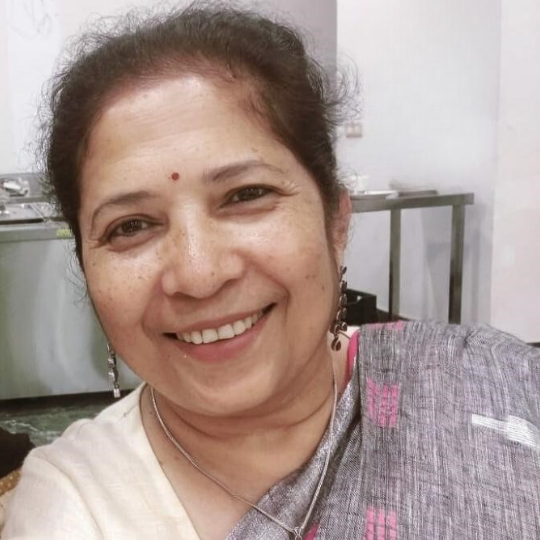
Sanchita Mitra
Sanchita Mitra completed her Chartered Accountancy from ICAI in the year 1990. She served in Business Advisory Services at PricewaterhouseCoopers from 1990-2001. Her journey with SEWA Bharat began in the year 2005 from Delhi where she took up the responsibility of strengthening the community led microfinance programme in the states of Delhi, Bihar, Uttarakhand, West Bengal, UP and Rajasthan. Initially, starting with a SHG (Self-Help Group) model, with her professional knowledge and experience, she was instrumental in setting up of two state level microfinance cooperative societies, one in Delhi and another in Bihar.
These were based on the learnings from SEWA Bank, keeping women at the centre of all strategies and management. She has led the Financial Inclusion programme in Uttarakhand, bringing 80,000 men and women in difficult mountainous terrain under a formal financial system. Sanchita Mitra is the National Coordinator at SEWA Bharat, a national level federation of Self-Employed Women’s Association based in New Delhi. She directly oversees the development of new and developing SEWA institutions in eight states to strengthen the national movement through the integration of the access to basic rights as workers and citizens, grassroot leadership, strengthening women micro entrepreneurs and women owned social enterprises locally.
She has initiated and supported various collaborative efforts with social sector organisations, government think tanks, academic and technical institutions to expand and deepen the work of women in the informal economy. She has also been part of various panel discussions and webinars to make systemic changes for scaling up outreach and impact to bring visibility of the women at the bottom of the pyramid to the outside world.
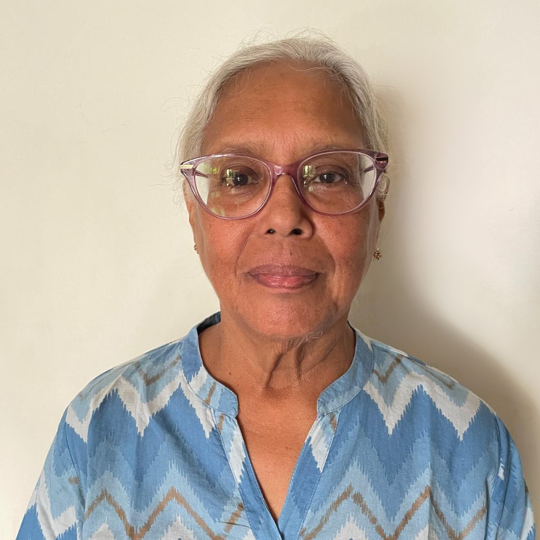
Nalini Nayak
Nalini Nayak is an Invitee Member of the SEWA Bharat Board, and specifically lends her expertise to SEWA Bharat’s work with domestic workers, building the capacity of women community leaders (aagewans at SEWA), understanding violence in the world of work, and more recently – national and international migration of women workers. She draws on her 30 years of experience in organising women workers across India and as a vocal advocate for women workers’ rights globally.
Within the SEWA movement, she founded SEWA Kerala in 1984, which came into existence as part of a search to find alternative livelihoods for women workers who had lost their livelihoods as a result of the economic crisis and its impact on the traditional economy. She is a key figure globally in supporting the rights of fish workers, and is the founder member of the International Collective in Support of Fishworkers, where she has taken the initiative to collectively evolve a feminist perspective in fisheries. She has assisted in building fisherwomen’s groups in several countries to enhance their role and space in fish sales.
As an Ashoka Fellow, she undertook the regeneration of mangrove ecosystems in three estuaries in South India as a way to safeguard the fisheries’ habitat. She has served as a member of the Consultative Team on Gender Concerns in the development of fisheries in Mozambique and as an invitee to the National Committee of the National Fishworkers Forum, India. For the first decade of its existence, Nalini ben was the National Coordinator of the National Platform of Domestic Workers which brought together unions of domestic workers from all over the country in an effort to advocate for a comprehensive legislation for domestic workers in India.
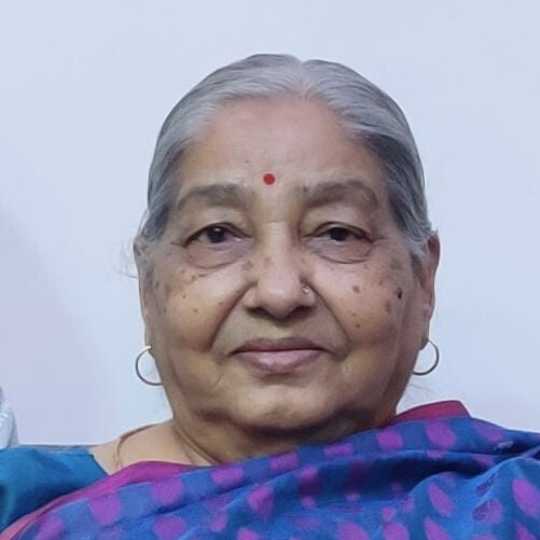
Manorama Joshi
Manorama Joshi is an Invitee Member of the SEWA Bharat Board and has previously served as its General Secretary from 1989 to 2009. Having heard about Elaben’s work with SEWA in Gujarat, Manorama ben started organising women workers in Madhya Pradesh. SEWA Madhya Pradesh (SEWA MP) was founded by Manorama Joshi in 1985 in Indore. At present, SEWA MP works with 6.5 lakh women working in the informal economy in 16 districts of Madhya Pradesh. She also founded Credit and Industrial Co-operatives, and other organisations in the state of Madhya Pradesh.
As the General Secretary of SEWA Bharat, she was deeply involved in promoting SEWA Bharat’s work in Bihar, Rajasthan, Delhi, and West Bengal. She was a member of many decision-making bodies of Madhya Pradesh’s state government and was deeply involved in bringing informal economy workers laws in Madhya Pradesh. For her dedication towards the poor women and their families, she was awarded the first Rajmata Vijayaraje Award in 2007 by the state government of Madhya Pradesh.
